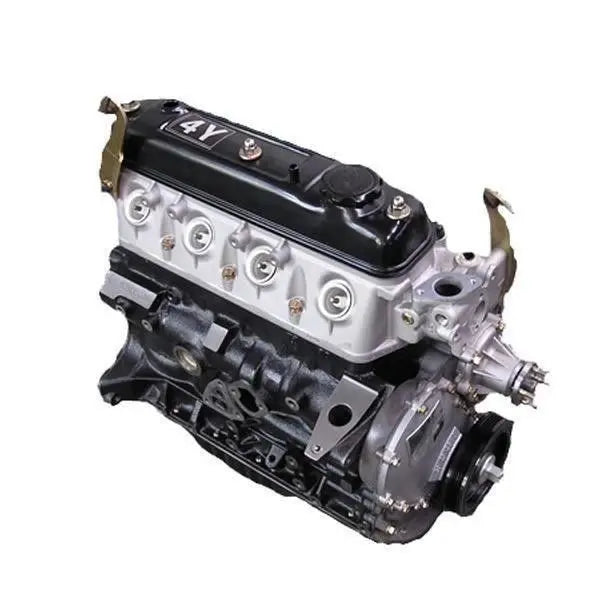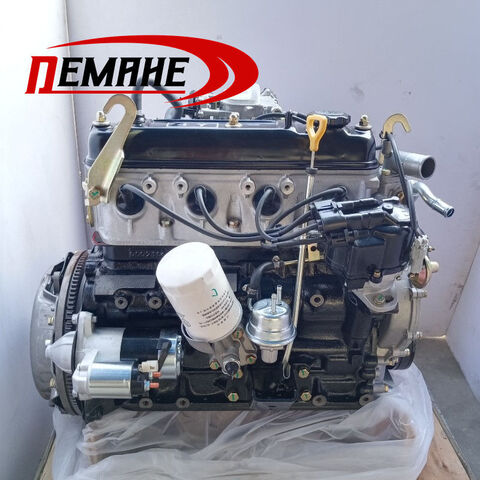The Advantages of Choosing a Vehicle Powered by the 4Y Engine
The Advantages of Choosing a Vehicle Powered by the 4Y Engine
Blog Article
Discovering the Various Kinds Of Engine: Which One Fits Your Demands?
In the pursuit to determine one of the most appropriate engine type for your specific requirements, it is crucial to examine the distinct attributes and advantages of each option readily available. Interior burning engines remain to control because of their dependability, while electric engines are gaining traction for their sustainability. Hybrid engines provide a functional compromise, and diesel engines stick out for their power in requiring applications. Additionally, alternative gas engines present cutting-edge services, albeit with certain restrictions. Recognizing your concerns will certainly be crucial in this decision-making procedure, leading to an expedition of aspects that might influence your option.

Interior Combustion Engines
Inner combustion engines (ICEs) are the foundation of contemporary transportation, powering a large selection of automobiles from autos to airplanes. These engines operate the principle of converting fuel right into power via a series of controlled surges within a combustion chamber. The most typical types of ICEs include gas engines, diesel engines, and rotary engines, each created to fulfill certain efficiency and efficiency needs.
Fuel engines commonly use stimulate ignition, while diesel motor depend on compression ignition, leading to distinctive distinctions in gas efficiency and power output (4y engine). Rotary engines, or Wankel engines, supply a compact design and smooth operation, however are less frequently utilized in mainstream applications
ICEs have undergone considerable developments in technology, including the introduction of turbocharging and fuel injection systems, which enhance total performance and performance. In spite of their performance improvements, ICEs encounter increasing examination because of their environmental influence, especially relating to greenhouse gas discharges. As the auto industry evolves, the future of ICEs remains a topic of argument, balancing efficiency, effectiveness, and environmental factors to consider. Nevertheless, they remain to play a critical role in international transport facilities.
Electric Engines
As worries concerning ecological sustainability and nonrenewable fuel source dependence expand, electrical engines have actually emerged as a compelling alternative to inner burning engines. These engines use electric motors powered by batteries or fuel cells, providing a cleaner and more reliable motive powers.
One of the primary benefits of electrical engines is their reduced emissions. Unlike traditional engines that melt nonrenewable fuel sources, electric engines produce zero tailpipe emissions, considerably lowering air contamination and adding to improved public wellness. Furthermore, the effectiveness of electrical motors usually goes beyond that of internal burning engines, converting a better percentage of energy from the source of power into useful energy for movement.
Electric engines are likewise noteworthy for their peaceful operation, making them excellent for metropolitan settings. 4y engine. The simplicity of their layout results in less relocating parts, which can bring about decreased upkeep costs and increased integrity gradually
Nonetheless, difficulties continue to be, including battery manufacturing impacts, billing facilities, and array limitations. In spite of these hurdles, the growing financial investment in electric automobile technology and renewable resource sources points towards a promising future for electric engines, placed to play a critical role in the shift towards sustainable transportation.
Crossbreed Engines
Blending the benefits of both standard and electrical inner combustion engines, hybrid engines represent a functional solution in the quest for effective and lasting transport. These engines incorporate a fuel or diesel motor with an electrical motor, enabling enhanced fuel effectiveness and lowered emissions compared to traditional lorries.
Hybrid engines operate in several modes, making use of the electric motor for low-speed driving and the internal combustion engine for higher speeds or when even more power is required. This vibrant procedure not only improves fuel economy but additionally adds to a smoother driving experience. Regenerative stopping is an additional crucial feature, capturing energy generally shed throughout stopping and redirecting it to charge the battery.

As consumers progressively prioritize eco-friendliness, crossbreed engines stick out as a sensible option, providing an effective equilibrium of performance, performance, and environmental obligation. This adaptability makes them ideal for metropolitan commuting and long-distance traveling alike.
Diesel Engines
Performance and power are trademarks of diesel motor, which have long been preferred for their toughness and gas economic climate. These engines operate the concept of compression ignition, where air is compressed to a high temperature level prior to fuel is infused, sparking it without the need for stimulate plugs. This process allows diesel motor to accomplish greater thermal performance contrasted to gasoline engines, equating right into much better fuel mileage and reduced carbon dioxide exhausts.
Diesel engines are particularly well-suited for durable applications such as trucks, buses, and industrial machinery, where torque and durability are critical. Their layout typically includes more powerful components to endure the greater stress created throughout procedure, resulting in longer life span and lowered maintenance prices.

Alternative Gas Engines
While diesel motor have lengthy dominated the landscape of heavy-duty source of power, alternate fuel engines are acquiring grip as practical options for an extra lasting future. These engines utilize a range of gas, such as compressed gas (CNG), hydrogen, lp, and ethanol, aiming to decrease greenhouse gas discharges and dependence on fossil fuels.
One significant benefit of alternate fuel engines is their possible to lower carbon impacts. As an example, CNG engines send out fewer pollutants contrasted to conventional diesel motor, making them appropriate for metropolitan transit systems and fleets looking for to boost air quality. Ethanol, originated from biomass, not just reduces emissions but also supports farming economies.
Hydrogen gas cells stand for a sophisticated growth in this world, providing zero-emission power through a chemical reaction in between hydrogen and oxygen. However, challenges such as framework advancement and production costs continue to be barriers to prevalent adoption - 4y engine.
Verdict
Finally, picking the appropriate engine kind necessitates cautious consideration of certain requirements and choices. Internal burning engines provide reliability, while electrical engines focus on sustainability and lowered maintenance. Crossbreed engines integrate the advantages of both, improving performance, whereas diesel engines offer premium power and torque like this for durable applications. Alternative gas engines present green alternatives, albeit with possible infrastructure difficulties. Inevitably, a detailed evaluation of description driving practices and environmental values will help with a notified decision concerning engine selection.
Crossbreed engines use a flexible compromise, and diesel engines stand out for their power in demanding applications. The most usual types of ICEs include gasoline engines, diesel engines, and rotating engines, each created to satisfy specific efficiency and effectiveness requirements.
Unlike traditional engines that burn fossil gas, electrical engines produce absolutely no tailpipe discharges, substantially reducing air pollution and adding to improved public health.Crossbreed engines operate in several settings, utilizing the electrical motor for low-speed driving and the interior burning engine for greater speeds or when even more power is needed. Crossbreed engines integrate the advantages of both, improving efficiency, whereas diesel engines give remarkable power and torque for heavy-duty applications.
Report this page